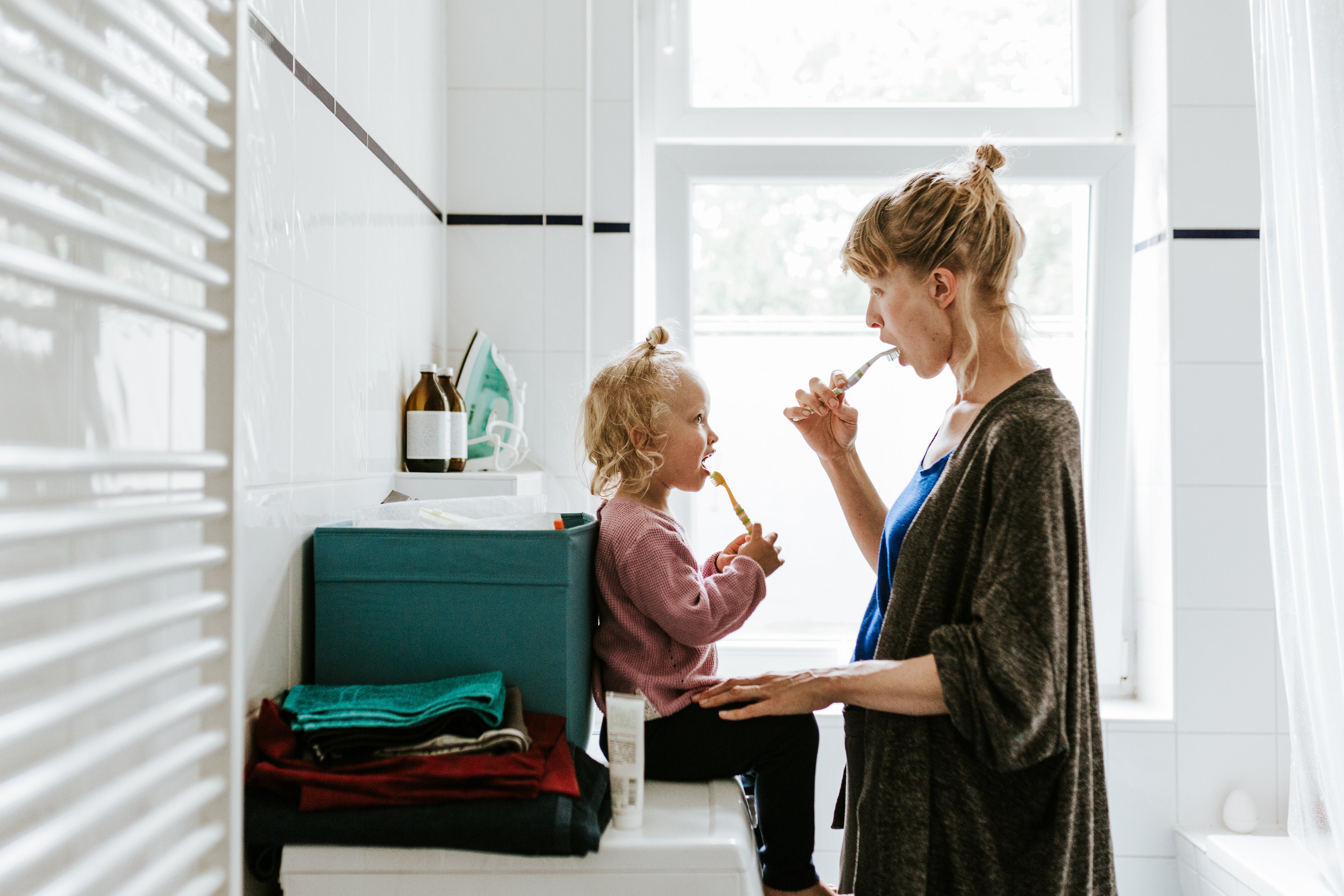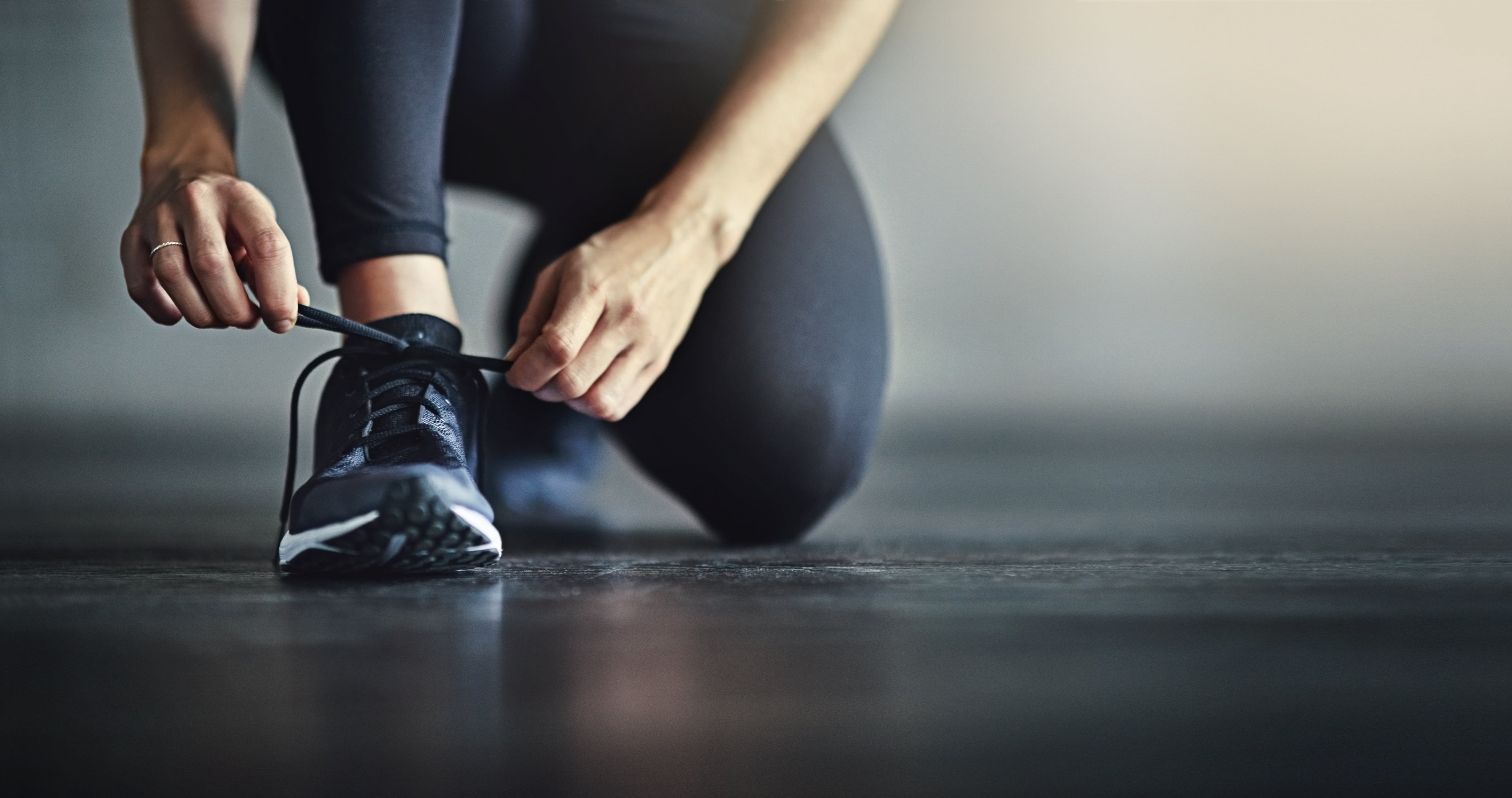How much control do we really have over our own lives? It’s a question that’s preoccupied philosophers and theologians for millennia. But whether you’re a firm believer in predeterminism or adhere to the school of thought that humans forge their own destinies in a world ruled by chaos, one thing is certain: much of your day is spent engaged in activities that you did not consciously decide to do.
You could call these actions habits: non-conscious processes usually triggered by environment and context. For example, you wake up, go to the bathroom and brush your teeth. It’s not that you have “decided” to do it; it’s just what you always do. And once you’ve started brushing, you’re even less actively engaged. You’re not thinking about how to brush your teeth, piloting pioneering new techniques to better scrub the back molars. You just do it, unthinkingly, while your mind wanders off elsewhere.
Experts in behavioural science have long known that swathes of our days are spent engaged in routine, but new research has claimed that even more of our actions than previously thought may be habitual rather than intentional. A study from the University of Surrey, University of South Carolina, and Central Queensland University, published in Psychology & Health, found that two-thirds of our daily behaviours are initiated “on autopilot”, or out of habit. The international research team surveyed 105 participants from the UK and Australia, sending six random prompts to their phones each day for a week that asked them to describe what they were doing, and whether it was triggered out of habit or done with intention. They found that 65 per cent of daily behaviours were habitually initiated, meaning people were prompted to do them out of routine rather than making a conscious decision.
The reason that habit is such a pervasive force in our lives is because so much of our daily routines are, by necessity, repetitive. “We consistently need to do the same things,” says Benjamin Gardner, professor in psychology at the University of Surrey and co-author of the study. “Every morning you wake up, you need to eat breakfast, you need to get to work, and so on. Forming a habit essentially means locking a behaviour into your routine and making sure that it can be done automatically.”
And that ability to do things automatically is actually a very efficient manoeuvre on the part of our brains. “We have limited processing power, limited mental resources,” he adds. “By making one behaviour automatic, it means that we can devote those resources to thinking about other things at the same time.”
Habits and acting on autopilot aren’t necessarily bad things. Far from it. As much as being “intentional” often garners high praise, it comes at a cost. “If we stopped and thought deeply about each action we take, we’d simply never get anything done,” says Sekoul Krastev, a decision scientist and co-founder of behavioural science consultancy The Decision Lab. Our smart wiring when it comes to daily micro-decisions is essentially our mind’s way of saving energy by creating shortcuts, freeing up our limited attention for bigger tasks that require greater cognitive capacity. As Daniel Kahneman, the founding father of behavioural economics, famously once put it: “Thinking is to humans as swimming is to cats; they can do it but they’d prefer not to.”
The question, really, is whether our habits are serving us; they are often so ingrained, and exert so much power over our behaviour, that we need to be careful about what routines we allow to form. “One analogy is shopping for large packs of food – if you’re forced to buy 100 of something, you better make sure it’s something you’re going to want to eat 100 times,” says Krastev. “Except with habits, the decisions we make around forming them can often extend years or decades forward.”

Here is where intention comes in – even if our actions themselves are not always intentional, the initial habits we form should be. Dr Heather McKee, a behaviour change expert who specialises in developing healthier habits, describes an example that is so close to home that I wonder whether she’s been camping out in my back garden and spying on me. “Habits are formed where there’s a cue or a trigger, there’s a certain behaviour, and you get a certain reward,” she says. “If you hit a stumbling block on writing an article, you get bored, you pull out your phone. The cue is getting bored at work, the routine is pulling out your phone, and the reward is getting that temporary relief from that feeling of frustration or stuckness.” The more I repeat this in the same context, the more my brain will “shortcut” that behaviour. This is where habits can become negative. My brain might think it’s being “helpful”, but spending 15 minutes mindlessly scrolling when I’m on deadline is anything but.
The good news is, we can hack our brain’s preference for habitual activity to shape our behaviour for the better, piggybacking on an automatic system that’s already in play.
The first step is to gain awareness of the habits that aren’t so helpful. McKee calls it being “a habit detective”; Gardner advises keeping a habit diary. “The crucial thing to do is try and work out what situation you’re doing it in,” he says. “Track when you did this thing that you didn’t want to do, and just beforehand, what were you exposed to? Who were you with? What were you thinking? What were you feeling? Where were you? If you do that for a few days, you start to see a pattern.”
It might be that you eat an unhealthy snack every afternoon with your coffee without thinking, have a drink whenever you clock off from a particularly stressful day at work, or doomscroll whenever you get into bed at night. Recognising the context that triggers the behaviour, both physical and emotional, is the first step in changing the pattern.
From there, reshaping rather than breaking the habit is the name of the game. “Behavioural science shows that it’s easier to replace an unhelpful habit with a healthier alternative than to rely on your willpower and whiteknuckle your way to change,” says McKee. Take the afternoon coffee and cake habit – you can reshape it by consciously combining the act of making a coffee with going for a walk or chatting to a colleague. “It mixes up the trigger or the cue and reshapes the routine but still provides that same reward,” she adds.
David Hall, co-founder and executive director of social enterprise Behaviour Change, says it’s all about making the better choice as frictionless as possible. His not-for-profit specialises on how to help people form more environmentally sustainable habits. “There’s an interaction in behaviour between how easy something is and how much you want to do it,” he explains. “If something’s really easy and you really want to do it, you’re going to do it, even if you already have a different habit. But if something is hard and you’re not that bothered, chances are you’re not going to take it up. Behavioural strategies are about making certain behaviours easier. Can you remove barriers? Can you simplify?”
Hall applies this methodology when working with local authorities to, for example, encourage people to start recycling toothpaste tubes, but it’s also something we can proactively implement in our daily lives ourselves. If you want to eat more fruit, make it easier for yourself by adding it as a recurring item to your weekly online shop and storing it at eye level in your fridge. If you want to run in the morning, find your exercise gear and lay it at the end of the bed the night before. If you want to stop binge-watching Netflix, replace the remote with a book and take the app off your phone. Small actions, yes, but they can have a big impact.

Speaking of small, that’s where we should start. McKee asks her clients to determine their “minimum viable habit – the smallest way in which you can create change”. Instead of committing to a 5km run every day, maybe you just commit to putting on your trainers, stepping outside the door and seeing what happens. “The hardest part is getting started,” she says. “Once you start, you can gain momentum over time.” She cites a study into dental hygiene, which found that participants who were told to floss just one tooth every night ended up with better dental health than those who were told to floss their whole mouth. Having such a low point of entry, the former group were more likely to start in the first place. Once they’d flossed that one tooth, it didn’t seem so hard to carry on and do the rest.
Another major factor in habit-forming is proximity, which is why looking at your environment is essential. To use the scrolling example once more – if your phone is on the desk, face up, you are far more likely to engage with it than if it’s in a bag in another room. Another experiment saw researchers place chocolate in an office environment. They tested how much people ate dependent on proximity and visibility – in some cases the treats were within arm’s reach on the desk, in others 2m away. People ate an average of 2.2 more pieces of confectionary each day when they were visible, and 1.8 more when they were placed on the same desk.
The final everyday recommendation is simple: joy. Incorporate enjoyment or reward into your newly reshaped habit, a technique sometimes known as “temptation bundling”, and you’re far more likely to stick to it. A study in which participants were only allowed to listen to a highly engaging audiobook when at the gym, for example, saw a much greater take up than for those with no incentive. McKee recommends tactics like listening to music you love while doing a workout, or only allowing yourself to watch your favourite guilty pleasure reality show while batch cooking for the week so that a positive association gets triggered by that behaviour. “Often when it comes to healthy habits, rather than do what we enjoy most we tend to do the opposite,” she says. “We punish ourselves with change.” But, as the saying goes, you really do catch more flies with honey.
There’s one final hack we can tap into, but only sporadically. As habits are context based, if the context changes, so can the action associated with it. Hall points to big lifestyle shifts as being the easiest time to shift behaviours. “When somebody moves house, or something big happens in their life, like they have a baby, or they retire, those are actually really great moments to change people’s habits,” he says. “Because the context is different, everything’s up in the air.” Obviously that’s not to say you should buy a new property simply to try to kickstart a daily meditation practice – but when those milestones do occur, it might be worth capitalising on them, rewriting patterns you’ve long been keen to amend.
It’s never too late to harness the power of the habit. We may be running on autopilot, but that doesn’t mean we’re not still in the driver’s seat.




